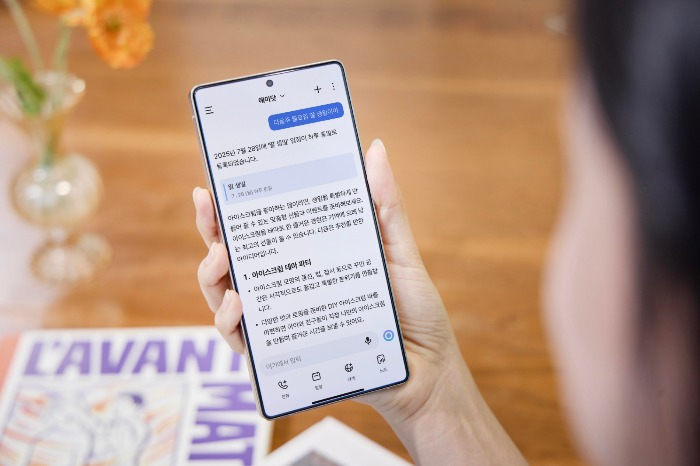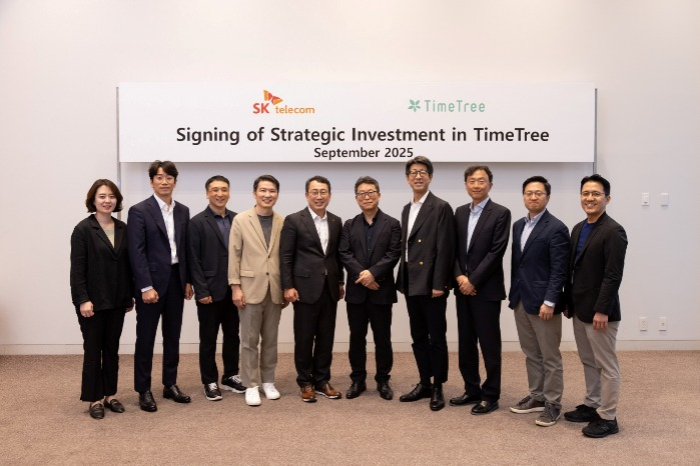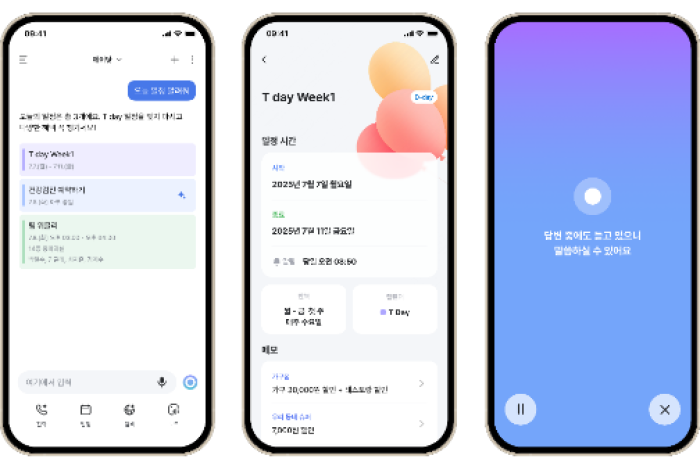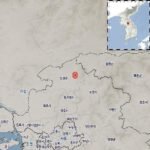
South Korea’s SK Telecom Co. is taking its artificial intelligence agent overseas for the first time, betting that Japan’s fast-growing AI market offers fertile ground to expand its AI ambitions.
The country’s largest mobile carrier announced on Monday that it has invested 2.2 billion yen ($15 million) in TimeTree Inc., a Tokyo-based startup behind a popular calendar-sharing app in Japan, as part of a strategic partnership between the two companies.
TimeTree, which debuted in the market in 2014, counts about 31 million registered users in Japan – nearly a quarter of the population – and 67 million worldwide.
Under the partnership, SK Telecom will integrate its AI agent, called A dot, or A., into the TimeTree platform, marking the Korean AI technology’s first deployment outside its home turf.
The upgrade, powered by SK Telecom’s latest Agentic Workflow technology, aims to transform TimeTree from a passive scheduling tool into an active agent that learns from user behavior, suggests events and manages tasks autonomously.
For SK Telecom, the deal is part of a strategy to establish an early foothold in Japan’s AI sector, where the government is stepping up support through new initiatives and relaxed regulations.

The Korean company said it expects the collaboration to serve as a springboard for broader global expansion of its AI services.
“Collaboration with TimeTree will give SK Telecom an important opportunity to create new value in global markets with our AI agent technology,” SK Telecom Chief Executive Ryu Young-sang said.
“We will strive to lead the expansion of AI agent ecosystems in both Korea and Japan.”
THE GLOBAL RACE FOR AI AGENTS
AI agents are autonomous software programs that can carry out routine or complex tasks without constant human input.
Unlike generative AI, which creates content based on prompts, agents are designed to act – planning, deciding and executing across multiple apps and services.

Generative AI has proven it can attract users, but agents promise recurring engagement and new revenue streams by embedding themselves in daily routines and enterprise workflows.
That potential explains why global tech firms, ranging from OpenAI and Google to SK Telecom, are racing to build agent ecosystems.
SK Telecom launched the first Korean-based large language model, A dot, in late 2023 and has since advanced it into a full-fledged AI agent.
Late November, the company introduced an AI-driven personal assistant called Aster (A*), built to understand user intentions and provide proactive suggestions.
With the agent tailored for a global audience, SK Telecom is positioning the service as a step toward building its AI ecosystem in North America.
By Ji-Hee Choi
mymasaki@hankyung.com
Sookyung Seo edited this article.















